A lot has happened in the last two and a half years.
It was November 2019 that Kevin Doyle secured the much sought-after Lot 560 at the Tattersalls November National Hunt Sale, a Camelot colt and half-brother to Altior. In a tense bidding battle, the hammer eventually dropped at a sale-topping €155,000 and the foal headed back to Slaney River Stud that evening.
Only just recently, “Mini Altior” departed his adopted home for a temporary stay at leading sales consignor Peter Nolan’s base, to prepare for a return to the sales ring at the Goffs Land Rover Sale next month.
In between drinks, a pandemic has wreaked havoc on the world, not least the racing bloodstock sector, with a slew of sales cancellations and postponements. That this foal will have been bought at a “normal” operated sale and sold again at a “normal” sale illustrates the length of time and patience you need at this vocation.
That is something Doyle embraces, which is somewhat surprising given his previous career as a professional footballer, the majority of which was spent in the high-octane environment of the Premier League.
The Camelot foal was Doyle’s first pinhook project but he already has a sophisticated breeding operation, of which the cycles are already well underway.
“National Hunt breeding, it’s not overnight,” he says, thoughtfully this week. “It’s a long and patient game - between picking out a stallion for your mare to selling that horse as a foal or as a three-year-old down the line. A lot can happen. I enjoy it. You have to enjoy it. There are plenty of ups and downs and you have to be patient to do it.
“I am patient and I don’t expect to make a fortune out of this. I’m probably trying not to lose a fortune to be honest and that’s the main objective for most people breeding horses I’d imagine. But if it gets you up out of bed in the morning, and you enjoy it, that’s half the battle.”
Doyle’s strategy with his stock is open - he might sell them as foals or as three-year-olds or indeed keep them in training. The decision to source a colt foal came about because Doyle had just bred three filly foals, and in any case, he wanted to experience this sort of project for the first time. On consultation with Peter Nolan, the Camelot foal was the only one he wanted.
“I went up just for him,” he recalls. “Obviously his page stood out but when I went to look at him with Peter and my father (Paddy), we thought he was ideal. He had a fabulous walk and a lovely temperament - because you know, he was dragged up and down there for the two or three days he was there, everyone wanted to see him.
“We thought he could develop into a lovely horse but other people probably thought the opposite, that he was too small. But he was a middle to late June foal, so he was going to be a little small, and we’ve seen that ourselves over the years so we knew what to expect. He was expensive, and he was a risk, but he was the one I wanted to buy.”

So two and a half years later, how has he developed?
“He’s grown into a lovely horse, the horse we thought he could be and I’m delighted with him,” Doyle asserts. “It’s gone how we had hoped and expected. He never put a foot wrong, never went lame and in truth he couldn’t have been easier to deal with. I’m sorry, I don’t have any big anecdote stories for you, it was all plain sailing.
“Now, listen, there’s still two and a half weeks to the sales and anything can happen but for the last two years, it’s been very easy with him.
“You could go out and get him in the field and do anything with his feet - you wouldn’t have to bring him in or anything. The kids could go in and be in on top of him or whatever and there wouldn’t be a bother on him, he’s been a pleasure to deal with.”
On sale
The foal will go on sale roughly around 2pm on the first day of the Land Rover (Tuesday June 7th). Doyle is buoyed by the strength of the current market but he’s laid back about the upcoming sale, which is likely to see the ring at Kildare Paddocks as busy as it will be all week.
“I’ll be looking forward to seeing what he looks like in the ring and what he sells for and if he sells,” Doyle says. “It’s not the end of the world if he doesn’t sell. He’ll have a reserve, and if he makes that he’ll go and if he doesn’t he’ll come back here and we’ll have fun making a plan with him then.
“Sure listen, I’ll be hoping he sells, that’s the ideal scenario but if he doesn’t, it’s not the end of the world. I hope he can look as well up there and do the job like he did as a foal. He has such a good temperament, he’ll probably be busy for the few days he’s there but you wouldn’t knock a feather off him.”
A small part of Doyle would naturally like to bring him home but he remains steadfast on the business part of the trade and if he is to keep any horses around, they’re likely to be home-bred fillies, with the ultimate aim of developing long-lasting families.
He has already bought and bred two fillies from a half-sister to Cousin Vinny, and La Bague Au Roi was the latest acquisition after Augusta Kate to have joined the roster at Slaney River, which he operates in conjunction with his father Paddy, who has his own set of mares.
First love
Growing up on the farm, Doyle was exposed to horses but he admits he had to be dragged out to help. His first love was the round ball and he’s thankful for that. A centre forward, he caught the eye of Reading while playing for Cork City in the League of Ireland, and moved to the Royals for a mere €117,000 in 2005. He’d go on to help them to promotion to the Premier League for the first time in the club’s history.
He had 164 appearances and 37 goals in the Premier League split between Reading and Wolves, who he signed for on a fee of £6.5 million in the summer of 2009. He also scored 14 goals in 62 appearances for Ireland.

Unfortunately, his time as a player had to end prematurely when he received medical advice warning him against the threat of repeated concussions while playing for the Colorado Rapids in America, but despite that, he’s content with his football career.
“I read stories about recently retired footballers that wake up one morning and they think ‘Oh shite’,” he says. “I don’t miss football, a lot of players, you see them being interviewed and they say they’d love to be back and they’d love to be playing but I don’t. I had plenty of time playing it and I got what I wanted out of it and now I’ve moved on to something else.
“We’re trying to make families here and hopefully we can have a bit of success along the way.
“I’m very lucky in that regard, to have something to do, if I was living in America or England and not have a focus or something to draw my attention to, it might be different, but I came home and the horses gave me something to concentrate on, that’s what the passion is about.
“We had always planned to come home to Wexford. My wife (Jenny) is from Wexford and we built a house here. Once we got married, it was always our aim to move back. I would have always been thinking about what I was going to do after football, probably from about mid 20s onwards.
“I looked at coaching, either in England or coming back to Ireland, but I always came back to the horses. I had time with the Ireland under 17s and I even did a bit for a friend with the Wexford under 20s GAA football team, but I always came back to the horses. The furthest I go with coaching now is my son’s under 10s soccer team, and that’s a fair challenge in itself. Horses were the thing that was going to get me out of bed in the morning.”
Laid back
Doyle always seemed like a laid back character and this interview doesn’t dispel that characterisation. For someone who went so high in the world’s most popular sport, his ambition for breeding National Hunt horses is sensibly realistic, despite his father showing it can be done, after he bred the multiple Cheltenham Festival and Grade 1 winner Holywell.
“Years and years of breeding went in to get Holywell,” Doyle says. “So as much as a buzz it was to see him, it also was a realisation of the amount of time, effort and luck involved to get one horse over many, many years.
“I’m sure my father really enjoyed the experience of having Holywell racing at the top level for the few years he was there.
“Sure isn’t that what every breeder would aspire to? To have a horse that’s good enough to run in a Gold Cup, and he was unlucky there actually (finished fourth).
“I’m no different to anyone else. The dream is to breed some winners over the course of the years. You’ll have plenty of good years and plenty of bad years I suppose. We’re just trying to keep the family going.
“I’ve bought some good mares in the last few years, and hopefully they will be the foundations. In most cases actually, a good racing broodmare probably isn’t going to produce the best racehorses but their offspring then will go ahead and do it, it skips a generation.
“And like any breeder, I enjoy the process of selecting a stallion and the joy of waiting to see what sort of foal will come out every year. Foaling season I suppose is a particular favourite bit for every breeder. Those few months when new foals are hitting the ground and what they’re like.”
Good connection
Doyle’s connection to racing, albeit in a subsidiary role, can only be good for the sport and while his sensible expectations of what he can achieve, there seems a reasonable chance he can produce a good horse or two out of Slaney River Stud.
“Between myself and my father, we’ve got 10 or 12 mares here now and that is manageable, it’s a one-in-one-out job from now on,” he says.
“We’re trying to make families here and hopefully we can have a bit of success along the way. I enjoy it a lot, and as long as that’s the case, I’ll stay doing it.”

Current market
It’s amazing that the horse market has stood up to everything that has been thrown at it in the last few years. Covid would have set it back, the war and Ukraine at the moment would have set it back with the prices of hay and feed but the market seems as resilient as ever.
Even ourselves, thinking about what mares to put in foal and you’re wondering next year what way the foal market might be, but just looking at the sales, they seem to be as strong as ever, Doncaster is obviously the first sort of store sale of the year and looking at it, it seems the sale has been as good as any year.
It’s good for us obviously. That’s the risk you take breeding or buying foals - you don’t know what the market is going to be like in two and a half years time or whether the stallion will be as or more popular. It’s always changing but good horses always seem to sell at a decent price.
Former teammates
I keep in touch with different lads and there’s plenty of them interested in horses. John O’Shea has had plenty of horses over the years and still has a few.
Stephen Hunt, Glenn Whelan and Shane Long have all had horses as well. But none of them have come from me - I try to avoid going down that route because I don’t need that phone call telling that so-and-so horse is no good!
Point-to-point route
I wouldn’t rule out going down the points route. It depends on the horse and the year and everything else. I’ve one or two fillies that I might hold on to and they could go down that route.
My father has had plenty with Colin Bowe over the years. It has become a very successful way of trading and Wexford seems to be the capital of point-to-point so you’d have umpteen options. I’d imagine I will go down points route at some stage.




 This is a subscriber-only article
This is a subscriber-only article
 It looks like you're browsing in private mode
It looks like you're browsing in private mode




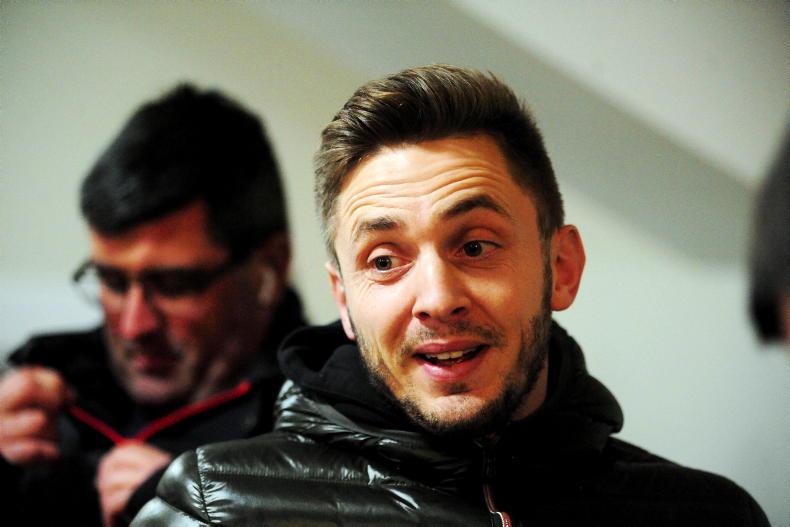
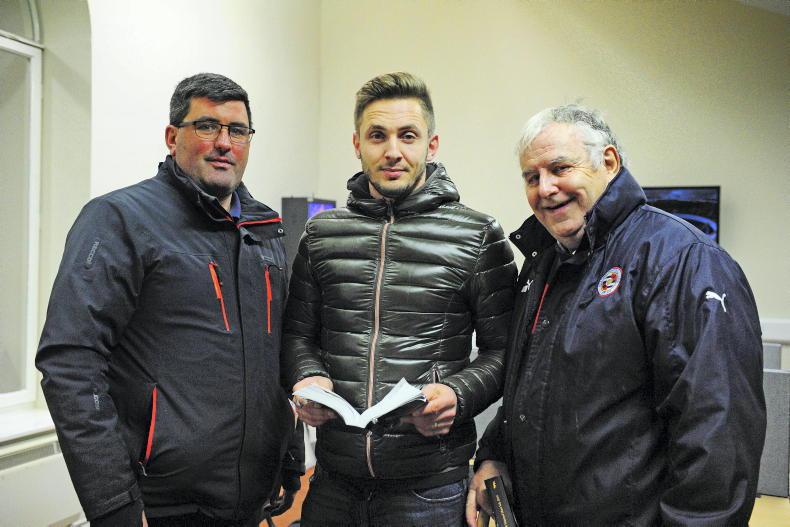
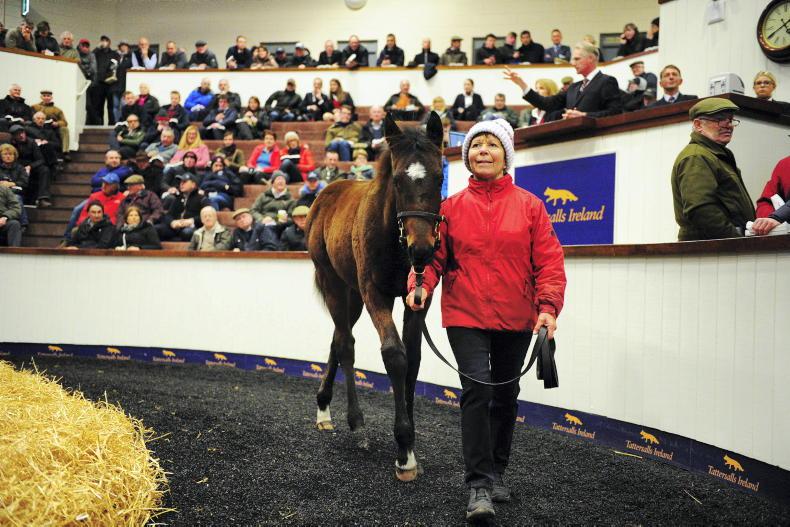
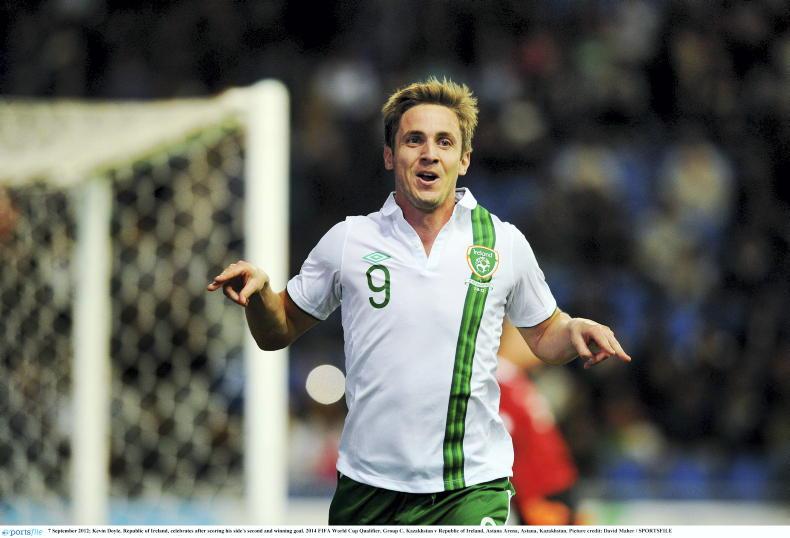
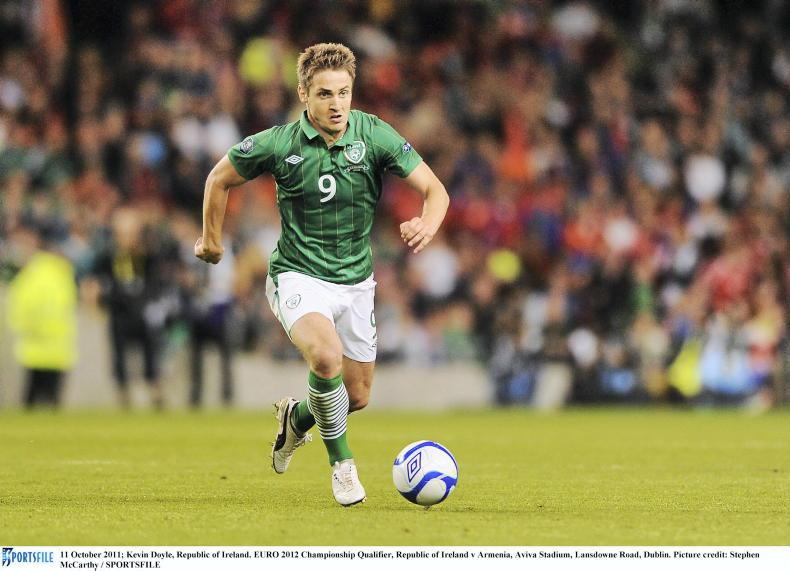


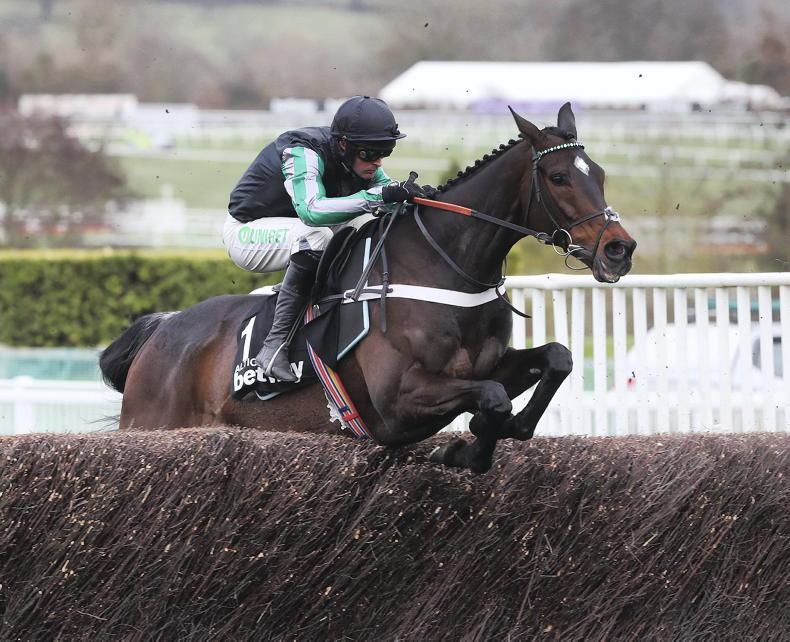
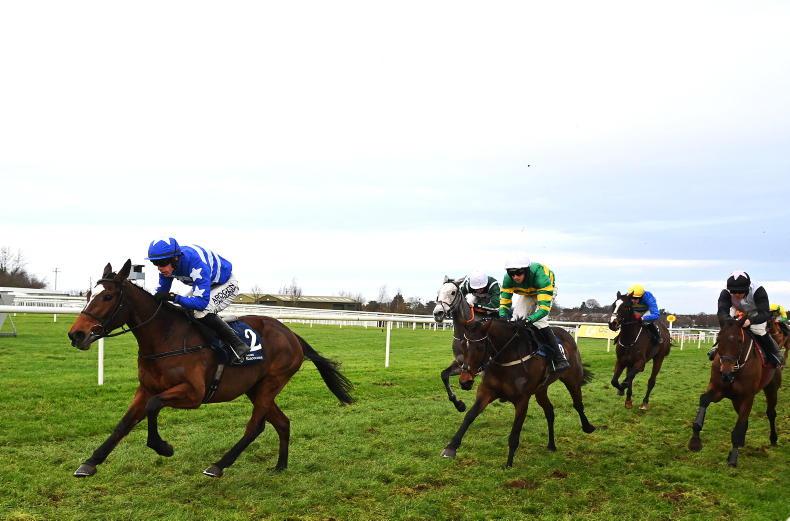

SHARING OPTIONS: